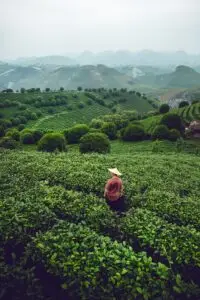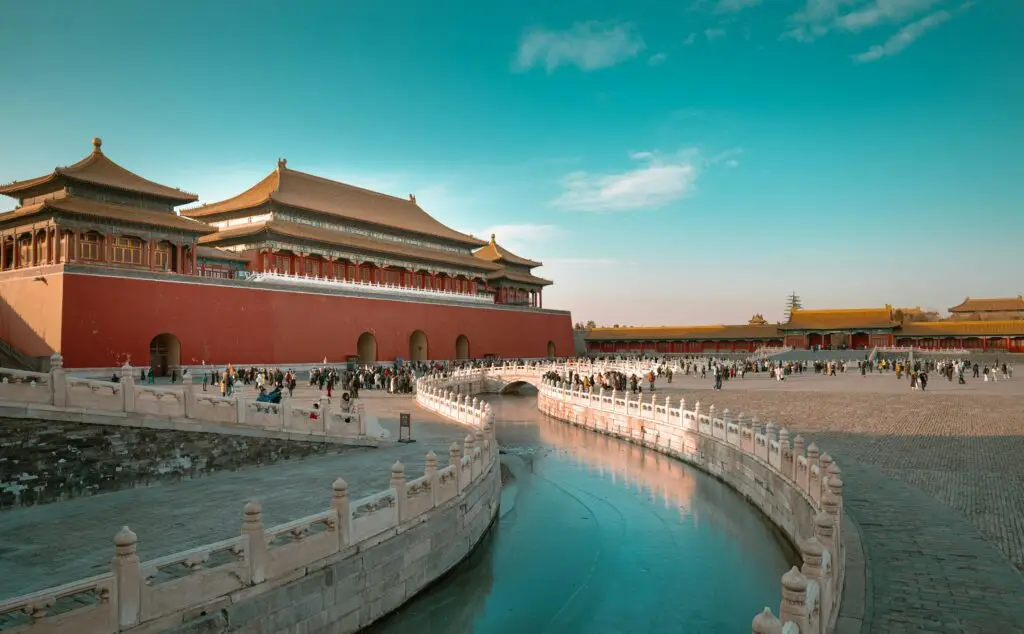There are few experiences in China as serene and enriching as walking through a tea garden. Here, where mist rolls over emerald hillsides and rows of neatly trimmed bushes stretch as far as the eye can see, the air is perfumed with freshness, and the rhythm of life slows to match the gentle pace of nature. Tea in China is not just a drink—it is a culture, a philosophy, and a connection between people and the land. Traveling through tea-growing regions is an invitation to trace the roots of this ancient tradition.
 One of the most celebrated destinations is Hangzhou’s Longjing (Dragon Well) Tea Plantation, nestled near the West Lake. Early spring is the magical season here, when tender green buds are plucked by hand—a delicate ritual unchanged for centuries. Travelers can watch tea pickers at work, their movements precise and rhythmic, and even try their own hand at harvesting. A cup of freshly brewed Longjing, with its subtle, chestnut-like flavor, tastes unlike any tea you’ve ever known: smooth, fragrant, and deeply tied to the landscape around you.
One of the most celebrated destinations is Hangzhou’s Longjing (Dragon Well) Tea Plantation, nestled near the West Lake. Early spring is the magical season here, when tender green buds are plucked by hand—a delicate ritual unchanged for centuries. Travelers can watch tea pickers at work, their movements precise and rhythmic, and even try their own hand at harvesting. A cup of freshly brewed Longjing, with its subtle, chestnut-like flavor, tastes unlike any tea you’ve ever known: smooth, fragrant, and deeply tied to the landscape around you.
Further south, the Wuyi Mountains in Fujian offer a completely different world of tea. Known as the birthplace of oolong, this UNESCO World Heritage Site is famous for its dramatic cliffs and winding rivers. Hiking here means passing through craggy peaks and misty valleys where rare Da Hong Pao (Big Red Robe) tea bushes cling to sheer rock faces. Tasting oolong in its homeland is a profound experience—the flavors are layered, smoky, and floral, reflecting both the rocky soil and centuries of cultivation.
In Yunnan, tea takes on an even more ancient identity. This is the home of Pu’er tea, a fermented variety with a history as rich as its earthy taste. The old tea forests near Xishuangbanna are still dotted with ancient tea trees, some over a thousand years old. Here, tea is more than a crop; it is part of the heritage of local minority communities, who see tea as a living companion passed down through generations. Sitting with villagers, sipping Pu’er in bamboo cups, travelers experience not only the flavors of the land but the warmth of its people.
Beyond the plantations and tasting sessions, tea gardens are places of reflection. Paths wind through terraced hillsides, offering quiet moments where one can simply listen—to birdsong, to the whisper of leaves, and to the centuries of tradition steeped in each cup. Tea has always been about balance and mindfulness, and walking through these landscapes feels like stepping into that philosophy.
Visiting China’s tea gardens is not just about tasting the world’s finest leaves. It is about entering into a living culture that has shaped art, poetry, philosophy, and daily life for millennia. From the elegant simplicity of Longjing to the bold strength of Pu’er, every cup tells a story of place, time, and tradition. For travelers seeking an experience that nourishes both body and spirit, China’s tea gardens offer a journey unlike any other.

